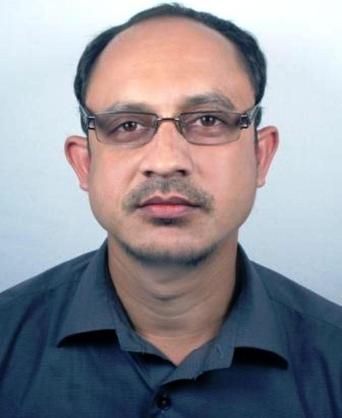


Prof. Syed Arshad Hussain
M.Sc. level: 26 per semester
Aiming towards skill development and employability Department of Physics has introduced following courses
Nanotechnology is an emerging subject with respect to future technological applications. Accordingly department has introduced a 4 credit course on “Thin Films and Nano Science” comprising of both theory and practical components. Here students will learn the basics of the subject as well as various sophisticated instrumentations related to Nanotechnology. For example various thin films preparation and characterization techniques, design and characterizations of various optoelectronics devices. The hands on training on various high end sophisticated equipments will help the students in term of human resource generation as well as employability.
Here students will learn about designing different basic & advanced analog and digital electronics circuits using discrete components, ICs, PCB boards etc. This will help students securing jobs in electronics industry.
At present so much of our world is automated and most of the activities are computer based. Accordingly department has introduced a course on Computer Programming. Here students also learn about problem solving & algorithm, computer programming as well as numerical analysis using fortran and other languages. Also programming using various application packages like MATLAB, MATHMATICA etc have been introduced.
Here students will learn various open source and proprietary computational software, software licensing, installation in different operating system environment, console commands, running codes from console and editors, control statements, Graphical User Interface (GUI), circuit simulation, symbolic mathematics, application of numerical analysis to problem solving in physics, basic modeling, basic concept of Artificial Intelligence (AI).'
Accordingly students will gain necessary skills for employment in various sectors involving computer applications.
Microprocessor is a very useful tool for our modern communication. In fact the performance of any computer is vastly dependent on them. Here students will learn about the basics of the internal microprocessor architecture as well as programming. Both theoretical and practical demonstration along with hands on training help the students acquire necessary skills which help them for future employment point of view.
Also there is a mandatory course on “Computer Soft Skill – II” offered by Department of IT, where students will learn the necessary basic skills to work with computer.
Rs 613.22 Lakhs
Langmuir-Blodgett (LB) films, Self assembled (LbL) films, organo-clay hybrid, FRET, organic memory devices, biomimetic surface, optical sensors, biosensors, chromatic sensors etc.
Lightning and its effects on terrestrial environment, its relation with long term climate change. Coupling mechanism between upper atmosphere (magnetosphere and ionosphere), troposphere and its relation with space environment. Atmospheric aerosol radiative forcing and synoptic scale precursory signature of earthquakes through electromagnetic channel.
Theoretical Condensed Matter Physics & Materials Science, Theoretical atomic & molecular spectroscopy
Synthesis and characterization of metal, semiconductor & Magnetic nanoparticles for study of their different properties with proper applications.
Total Number of Visitors : 4916655
Tripura University © All Rights Reseverd
Last Update : 20/05/2024 02:03:34
Designed and Developed by Dataflow System